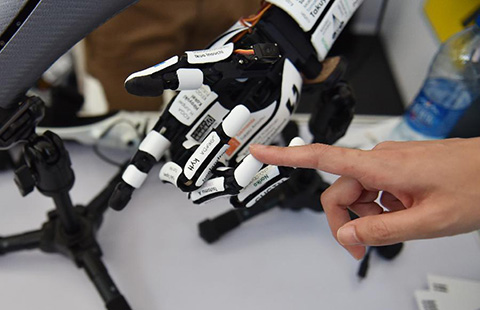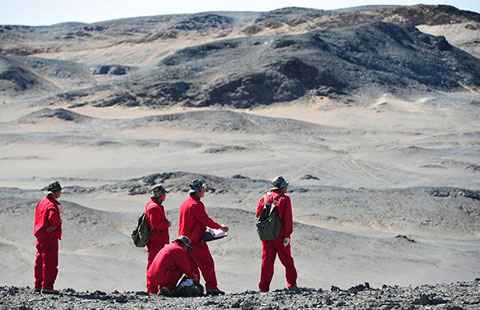Backgrounder: Major achievements in China-US S&ED, CPE talks before 2015
(Xinhua) Updated: 2015-06-22 11:27BEIJING - The 7th China-US Strategic and Economic Dialogue (S&ED) and the 6th China-US High-Level Consultation on People-to-People Exchange (CPE) will take place in Washington on June 22-24.
China and the United States have been holding the annual S&ED talks since 2009 as a major channel of communication to enhance mutual trust, boost cooperation and properly handle differences.
The following is a retrospect on the achievements made in the previous S&ED and CPE talks:
2014 S&ED, CPE in Beijing on July 9-10:
The year 2014 marked the 35th anniversary of the establishment of diplomatic relations between China and the United States. Stressing that common interests far outweigh differences, Chinese President Xi Jinping put forward proposals on accelerated negotiations on the Bilateral Investment Treaty (BIT), strengthening military dialogue, fighting terror, climate change and coordination on international and regional issues.
Chinese Vice Premier Wang Yang announced that the first round of negotiations on the BIT would be concluded shortly and enter the next phase on a negative list, which details sectors barred to US investment.
Climate cooperation also tops the agenda during the meeting. Companies and research institutes from both sides signed eight partnership agreements, covering areas from carbon capture to low-carbon cities.
It was the first time the CPE had been held alongside the S&ED. To build bonds between youth and create a peaceful future, China and the US signed a series of agreements and were expected to achieve results in 103 programs.
The CPE focused on closer links between Chinese and American youth, with highlights including a school cooperation program proposed by President Xi's wife Peng Liyuan and US President Barack Obama's wife Michelle, and a commemoration of the 35th anniversary of student exchange.
2013 S&ED in Washington on July 10-11:
The fifth round of S&ED talks saw significant progress and new political commitment in the BIT talks between Washington and Beijing.
After nine rounds of technical discussions, the two sides agreed to enter into substantive negotiations of the BIT.
During the dialogue, the two sides held meetings on energy security and climate change, identifying key areas for future cooperation. They also expanded their EcoPartnership program with the signing of six new partnership agreements to reduce greenhouse gases emissions and improve energy efficiency as well as create jobs.
- Alibaba sees business potential in Russia
- Economy to bottom out in Q3: report
- Chinese economy healthy, with great potential
- Lock-up shares worth 41.7 bln yuan to become tradable
- Investment treaty to top China-US S&ED agenda, doable under Obama administration
- As cafes multiply, so do 'coffee cats'
- Veteran coffee clubbers turn their noses up at Starbucks
- Overseas Chinese to send home $66 billion this year

















